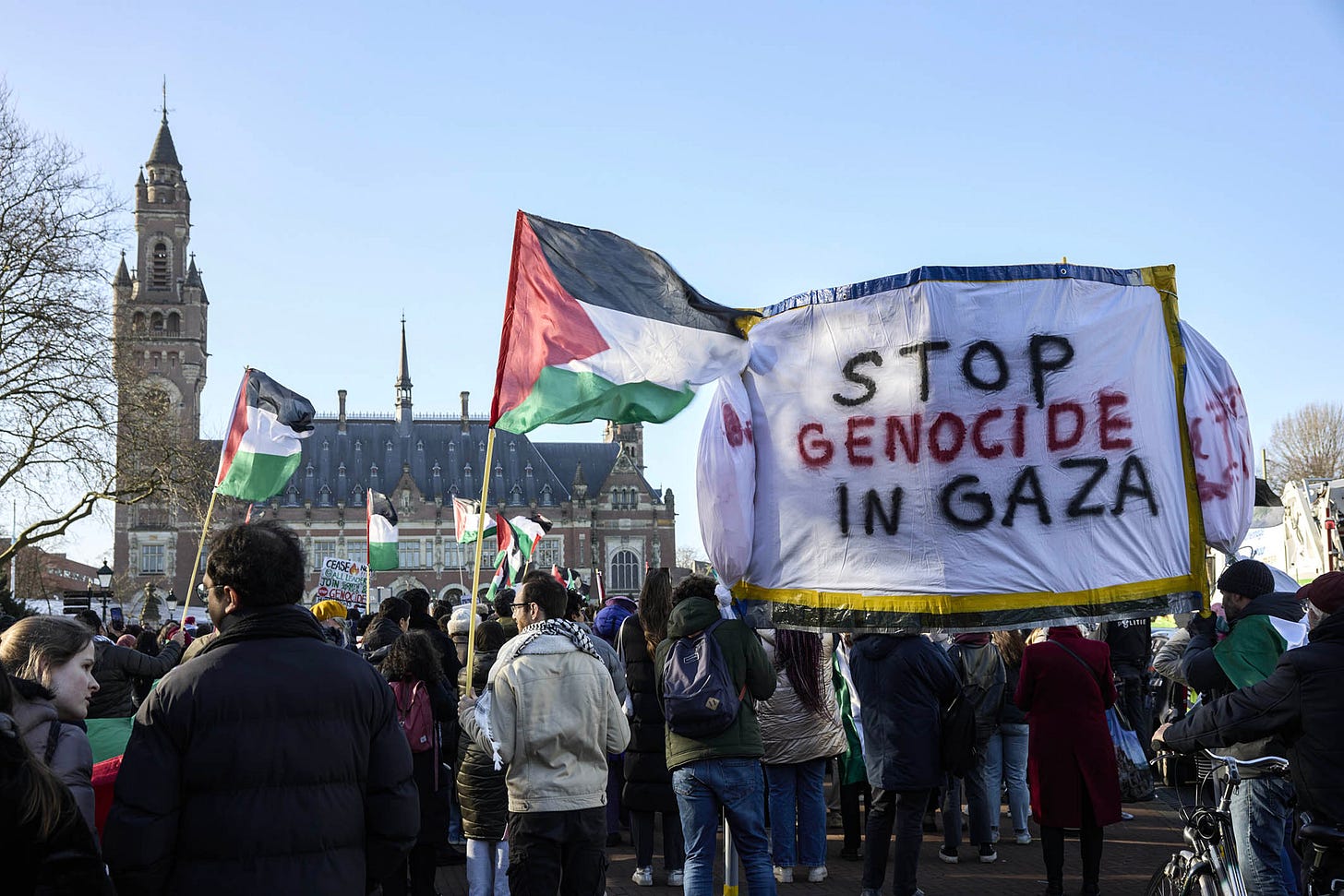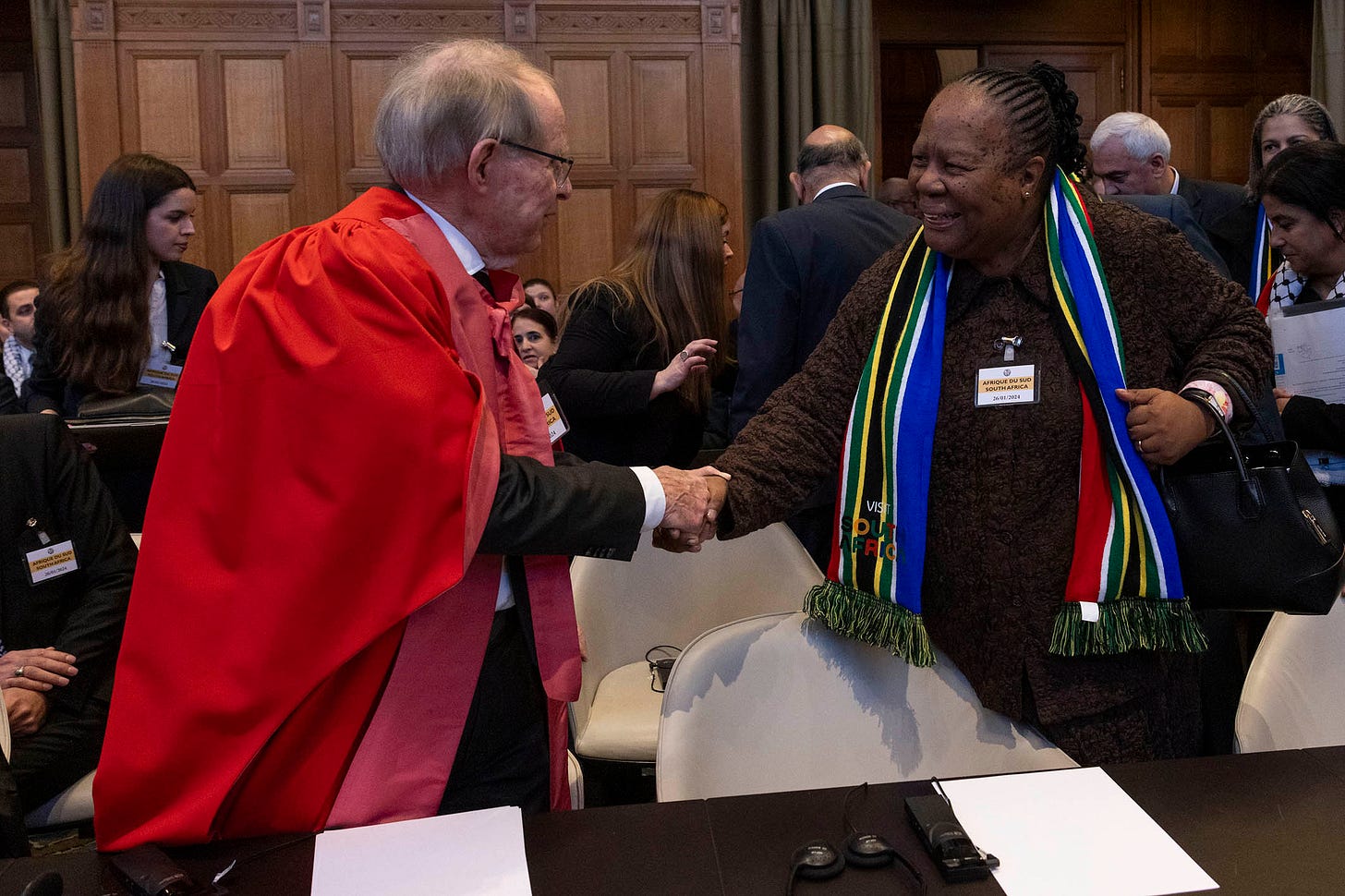South Africa said that Israel is on the wrong side of history – and the World Court agreed
The verdict is a qualified victory for South Africa’s all-star legal team, comprising some of the country’s most senior human rights lawyers

Simon Allison
The International Court of Justice has found that Israel’s actions in its war in Gaza fall under the scope of the Genocide Convention. It has issued a series of provisional orders to prevent genocide from taking place. The highly anticipated judgment in the case that South Africa brought against Israel was delivered on Friday in The Hague.
The court’s ruling was significant on three different fronts.
The first is legal. South Africa argued that Israel is committing genocide against Palestinians in the Gaza Strip. Israel’s rebuttal was that it is merely defending itself from a brutal terrorist group, after the 7 October attack by Hamas that left 1,200 people dead.
The verdict is a qualified victory for South Africa’s all-star legal team, comprising some of the country’s most senior human rights lawyers. They were hoping that the court would order an immediate ceasefire. It did not. But it did conclude that South Africa’s accusations of genocide are “plausible” and ordered Israel to halt the killing of Palestinians, whom it defined as a protected group.
That the court felt the need to make such an order is damning for Israel, especially when read along with the evidence provided by the court itself. This evidence paired the scale of civilian deaths – estimated at more than 26,000 – with the dehumanising language used by some of Israel’s most senior leaders. It is almost incomprehensible that a nation founded by survivors of genocide stands accused of committing that gravest of crimes.
But the world’s highest court has now confirmed that those allegations are plausible. The second front is geopolitical. In taking this case to The Hague, South Africa defied not only Israel but also its backers, including the United States, Germany, France and the United Kingdom. It was brave politics. These are the most powerful countries in the western world, with enormous influence over global politics and economics. They make for dangerous enemies.
But South Africa has a bigger prize in mind. Its diplomats have long dreamed of cementing South Africa as the moral voice of the Global South, and this was the perfect issue on which to do so.
In standing against Israel’s ongoing atrocities, it exposed the hypocrisy of Western nations that preach human rights and democracy – but don’t apply those values to Palestinian lives. This message has resonated strongly around the world, bringing South Africa widespread international support. “South Africa is now the leader of the free world,” concluded the UK-based Guardian columnist Owen Jones.

This may be a stretch, as South Africa is itself no stranger to hypocrisy. President Cyril Ramaphosa welcomed Sudanese warlord Mohamed Hamdan Dagalo, known as Hemedti, in Pretoria just a week before South African lawyers made their arguments in The Hague. Hemedti was involved in the Darfur Genocide in the early 2000s, and there is plenty of evidence that his forces are committing war crimes in the ongoing Sudanese civil war.
And South Africa’s stance against Israel is in marked contrast to its approach to the Russia-Ukraine war, where it repeatedly refrained from condemning Russian atrocities at the United Nations, supposedly in the interests of remaining non-aligned. This caused immense damage to the country’s reputation.
But South African diplomats appear to have learned from that debacle, and its reaction to the conflict in Gaza was different – no doubt also influenced by the country’s own lived experience of apartheid. It turns out that there is enormous power in a human rights-centred foreign policy, and South Africa’s international standing now is higher than at any point since its transition to democracy – at least in the Global South.
The final front is, of course, the actual battle being waged in the streets of Gaza, where Palestinian civilians continue to die in the face of a relentless, indiscriminate onslaught. It is not yet clear whether either Hamas (who were ordered to release all remaining Israeli hostages) or Israel will abide by any part of the court’s verdict.
“Hague Shmague” was the immediate, dismissive response of Israel’s Security Minister Itamar Ben-Gvir. It has previously ignored the court, 20 years ago, when it ruled against Israel constructing a wall in the occupied West Bank.
But what the court in The Hague has clarified, with little room for argument, is that in this instance Israel – and its international cheerleaders – are on the wrong side of history.





